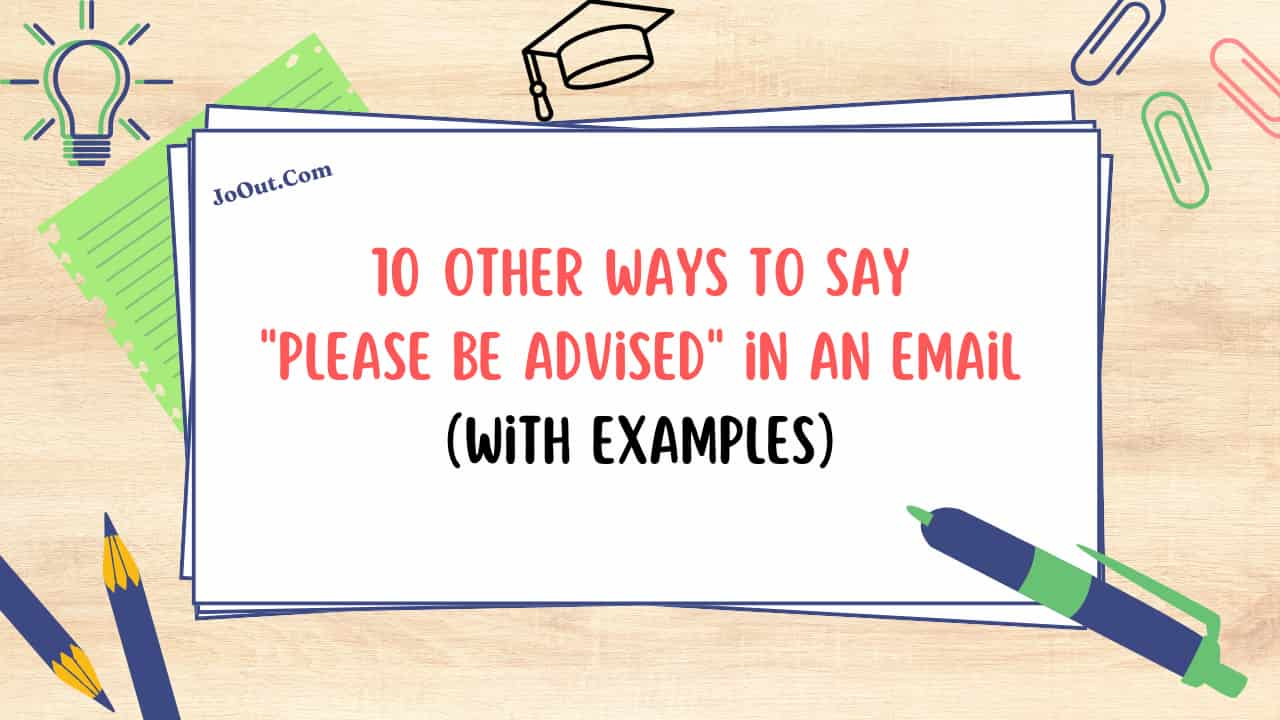10 Other Ways to Say “Please Be Advised” in an Email (With Examples)
In today’s fast-paced world of email communication, it’s essential to keep your messages clear and friendly. “Please be advised” can sometimes sound too formal or even bossy. But don’t worry! There are many other ways to share important information with your readers. Let’s explore ten alternatives to make your emails more engaging and easily understood.
10 Other Ways to Say “Please Be Advised” in an Email
- Please note
- For your information (FYI)
- Just to let you know
- I wanted to inform you
- It’s important to mention
- Kindly be aware
- I’d like to bring to your attention
- Please be aware
- Just a heads-up
- I thought you should know
Now, let’s dive into each alternative and see how to use them in your emails!
1. Please note
This is a simple and polite way to draw attention to important information. It’s less formal than “Please be advised” but still gets the point across.
Example: “Please note that the office will be closed next Monday for maintenance.”
2. For your information (FYI)
This casual phrase is great for sharing updates that don’t require immediate action. It’s friendly and straightforward.
Example: “FYI, we’ve updated the company holiday schedule for next year.”
3. Just to let you know
This phrase sounds like you’re having a conversation with the reader. It’s perfect for less formal emails or writing to colleagues you know well.
Example: “Just to let you know, the team meeting has been moved to 3 PM today.”
4. I wanted to inform you
This alternative is a bit more formal but still sounds personal. It’s suitable for sharing important news or updates.
Example: “I wanted to inform you that we’ve hired a new marketing manager starting next week.”
5. It’s important to mention
Use this phrase to highlight crucial information. It tells the reader to pay special attention to the following.
Example: “It’s important to mention that all employees must complete the safety training by Friday.”
6. Kindly be aware
This polite phrase is softer to say, “Please be advised.” It’s formal enough for professional emails but doesn’t sound too stiff.
Example: “Kindly be aware that the parking lot will be closed for repairs on Wednesday.”
7. I’d like to bring to your attention
This phrase is useful when you need to point out something specific. It’s a bit more formal and can be used in professional settings.
Example: “I’d like to bring to your attention that the deadline for the project has been extended to next month.”
8. Please be aware
This is a direct alternative to “Please be advised,” which sounds friendlier. It’s still formal enough for most business emails.
Example: “Please be aware that we’ll update our computer systems this weekend.”
9. Just a heads up
This casual phrase is perfect for quick, informal updates. It’s like giving someone a friendly warning or reminder.
Example: “Just a heads up, we’re running low on printer paper in the supply room.”
10. I thought you should know
This phrase makes your message sound more personal as if you’re looking out for the reader. It’s suitable for sharing information that might be helpful or important to them.
Example: “I thought you should know that the client changed their mind about the color scheme.”
Conclusion
Using these alternatives to “Please be advised” can make your emails sound more friendly and easily read. Remember to choose the correct phrase based on who you’re writing to and how formal the email needs to be. Mixing up your language will keep your readers interested and ensure your important messages get across clearly. Happy emailing!
